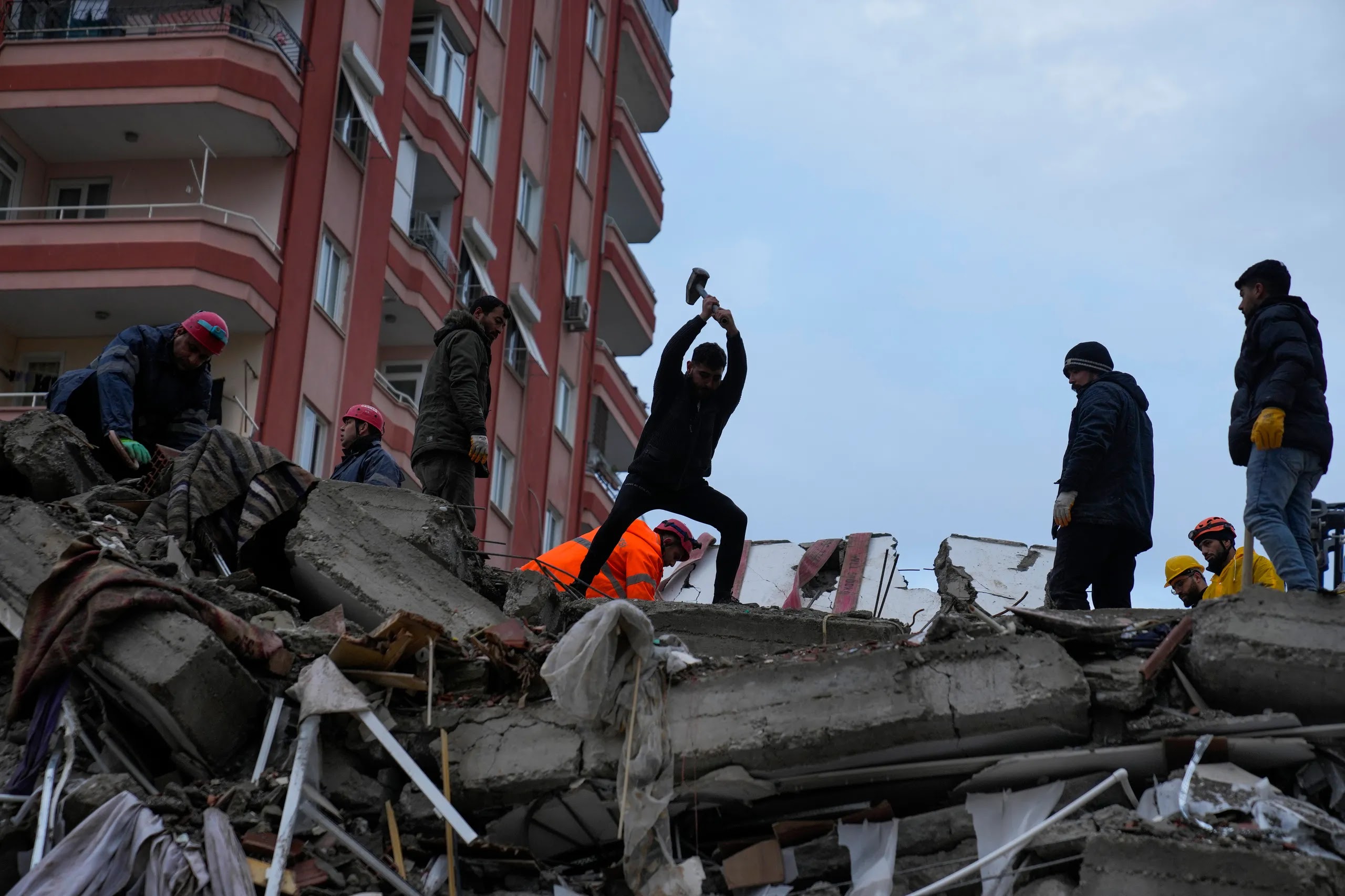Turkish President Tayyip Erdogan on Tuesday declared a state of emergency in 10 provinces devastated by two earthquakes that killed more than 5,100 people and left a trail of destruction across a wide area of southern Turkey and neighbouring Syria.
A day after the quakes hit, rescuers working in harsh conditions were struggling to dig people out of the rubble of collapsed buildings in a "race against time".
As the scale of the disaster became ever more apparent, the death toll looked likely to rise considerably. One United Nations official said it was feared thousands of children may have been killed.
Thousands of buildings were toppled, hospitals and schools wrecked and tens of thousands of people were injured or left homeless in several Turkish and Syrian cities by the magnitude 7.8 quake - the deadliest in Turkey since 1999 - and a second one hours later.
Bitter winter weather hampered rescue efforts and the delivery of aid, and made the plight of the homeless even more miserable. Some areas were without fuel and electricity.
Aid officials voiced particular concern about the situation in Syria, already afflicted by a humanitarian crisis after nearly 12 years of civil war.
In a speech on Tuesday, Erdogan declared the 10 Turkish provinces affected as a disaster zone and imposed a state of emergency in the region for three months. This will permit the president and cabinet to bypass parliament in enacting new laws and to limit or suspend rights and freedoms.
Advertisement · Scroll to continue
Report an ad
The government planned to open up hotels in the tourism hub of Antalya, to the west, to temporarily house people impacted by the quakes, said Erdogan, who faces a national election in three months' time.
The death toll in Turkey had risen to 3,549 people, Erdogan said. In Syria, the toll stood at just over 1,600, according to the government and a rescue service in the insurgent-held northwest.
"EVERY MINUTE, EVERY HOUR"
Turkish authorities say some 13.5 million people were affected in an area spanning roughly 450 km (280 miles) from Adana in the west to Diyarbakir in the east, and 300 km from Malatya in the north to Hatay in the south. Syrian authorities have reported deaths as far south as Hama, some 100 km from the epicentre.
"It's now a race against time," World Health Organization Director General Tedros Adhanom Ghebreyesus said in Geneva. "Every minute, every hour that passes, the chances of finding survivors alive diminishes."
Across the region, rescuers toiled through the night and into the morning searching for survivors as people waited in anguish by mounds of rubble, clinging to the hope that friends and relatives might be found alive.
In the Turkish city of Antakya, capital of Hatay province near the Syrian border, a woman's voice was heard calling for help under a pile of rubble. Reuters journalists saw the body of a small child lying lifeless nearby.
Weeping in the rain, a resident who gave his name as Deniz wrung his hands in despair.
"They're making noises but nobody is coming," he said. "We're devastated, we're devastated. My God... They're calling out. They're saying, 'Save us' but we can't save them. How are we going to save them? There has been nobody since the morning."
Families slept in cars lined up in the streets.













0 Comments